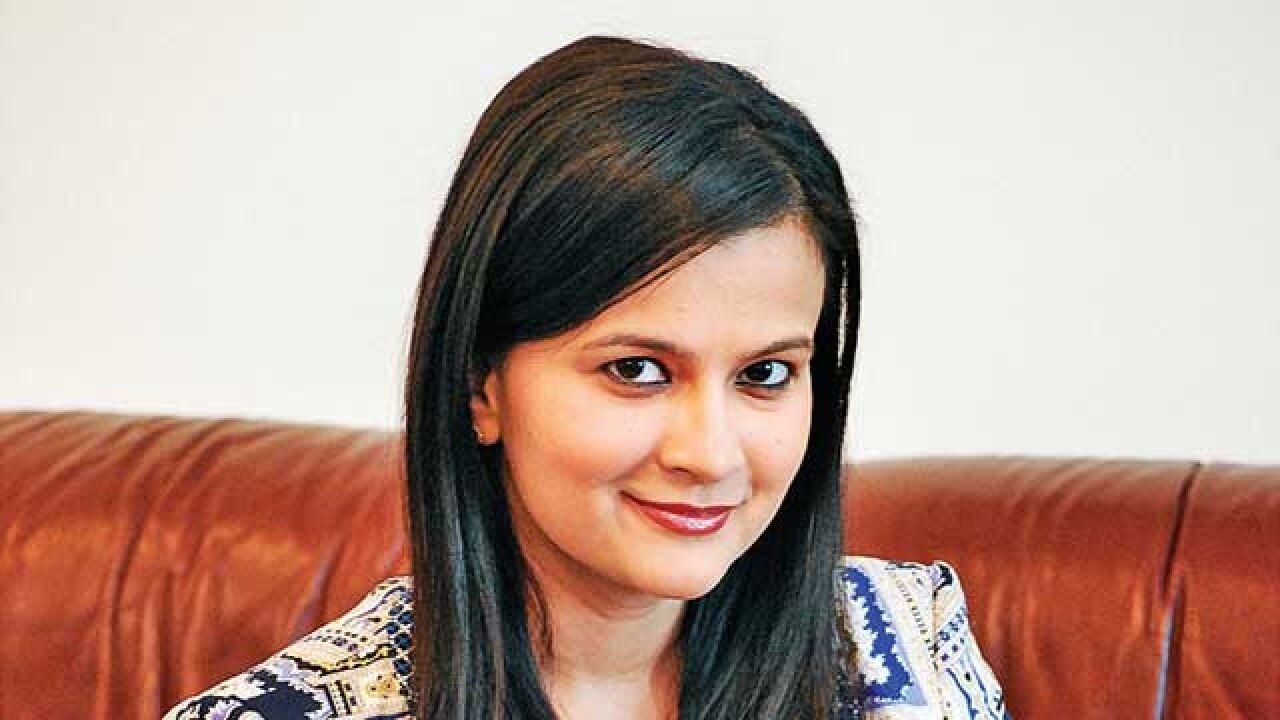
My first sight of Mumbai was the Haji Ali Dargah, standing like a sentry in the sea. I was moving with my family from Delhi to Mumbai and the overnight Air India flight had left me asleep on my mother’s lap. Hearing excited murmurs I opened my eyes and looked up to find the mosque bathed in the soft orange rays of the rising sun, with a big yellow moon behind it. It was at six in the morning. I was nine years old. I had never seen anything so beautiful in my life.
There were crows cawing. Waves licking the waterfront. Yellow-black taxis whizzing by. A milkman on a bicycle. A nariyal pani stand. Silhouettes of tall buildings. The Mahalaxmi Racecourse. I felt myself drawn by the pull of something as warm as my mother’s lap.
Through the next few years, the city adopted me: a migrant who was supposed to inhabit it only for a brief time, before the government retransferred my parents. I don’t know when exactly I fell in love with Mumbai. Was it at the tetrapods of Marine Drive, rain-lashed and unsteady, where most of the city’s youth came to fall in love? Was it when the portly guy outside St. Xavier’s College slathered mounds of Amul butter on our potato-cheese sandwiches? Was it while devouring dal dhokli at Swati Snacks, dhansak at Jimmy Boy, 3 a.m. kati rolls at Bademiya, kejriwal sandwiches at Willingdon Club or chicken shashlik sizzlers at Kobe? Was it the Gujaratis, Sindhis, Marwaris and Parsis who didn’t know what I, a Pahadi was, but still invited me into their hearth and hearts? Was it the kind taxi drivers that plied my college friends and me when we’d carpool seven on a seat to save money? Was it the double decker bus whose front seat I sat on to enjoy the wind play twister with my long hair? Was it when Mumbaikars wore sweaters in the 24 degrees of “winter”? Was it when my Hindi deteriorated to Bambaiya much to the amusement of my North Indian cousins? Was it when I found out that Bandra is named after monkeys––Bandar––because it was originally a hill full of monkeys?
I left this city, twice. I lived in the world’s most beautiful places like Switzerland and its most exciting places like New York City, but every single time I returned. I let myself be drawn by the pull of a city that had become my love. And like true love, it never led me astray.
Over the years we weren’t gentle with our city. We plied it with cars that made going from Andheri to Churchgate seem like a trip to another city. We made it groan under the weight of skyscrapers as tall as our ambitions. We threw garbage on its streets, culled its few green patches with concrete, filled its water-soaked tar with potholes, and packed its local trains like sardines. We made owning even a square foot of its land almost impossible. But through its sweltering summers and dripping monsoons the city still embraced us. It became the custodian of our dreams, small or big. It functioned amidst chaos with an efficiency that is benchmarked by its heroic dabbawalas. It let people come with empty palms and filled it with gold. It became a transformer, shape-shifting form, widening and expanding to include anyone who wanted to live in its mad beauty. It let us change its name without a whimper.
After the many bomb blasts, the floods, the riots and 26/11, the city sent us back to work and life the very next day, teaching us that tragedy––like subservience and defeat––is not an option.
Mumbai is a city so far beyond definition that to define it is travesty. Indeed, it is not a city, but a way of life and––most importantly––of love.
(Meghna Pant is an award-winning author, journalist and speaker whose new book The Trouble With Women will be published by Juggernaut in September.)